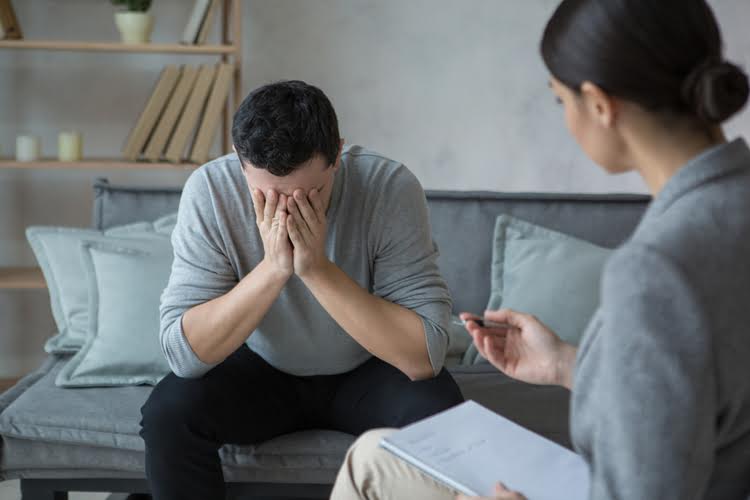Content
He is also a committee member of the organizations Bonei Olam and Chai Lifeline Mid-Atlantic. Mark has been instrumental in building healthy communities and providing access and quality healthcare to underserved populations. His service in the community is a testament to his passion and selfless dedication to the cause of eradicating addictive disorders and stigma.
But, alcohol has the power to seriously mess up your sleep — which, of course, can mess up your energy levels, mood, and performance the next day. 3In that study, participants drank 8.6 ounces of pure alcohol for 5 days followed by 11.4 ounces of pure alcohol for 5 days. One standard drink (i.e., 12 ounces of beer, 5 ounces of wine, or 1.5 ounces of 80 proof distilled spirits) contains approximately 0.5 ounce of pure alcohol. Several so-called sleep factors also have been implicated in the initiation and maintenance of sleep. These substances, which are naturally produced by the body, are released by certain cells into the bloodstream or the fluid surrounding the brain (i.e., cerebrospinal fluid) and can induce sleep.
Sleep in Alcoholics During Postwithdrawal Abstinence
Finally, proteins produced by the immune system (i.e., cytokines) have known effects on sleep and are altered in alcoholic individuals (Ehlers 2000; Krueger et al. 1999). Early theories regarding the neurobiology of sleep focused on the role of a group of compounds called monoamine neurotransmitters, particularly serotonin and norepinephrine (Jouvet 1969). Because alcohol also was known to affect these compounds, investigators speculated that alcohol disrupted sleep by altering the actions of monoamine neurotransmitters (Johnson et al. 1970; Smith et al. 1971; Zarcone et al. 1978).

Even slight amounts of pre-sleep alcohol can disturb the rhythm of your body’s natural biological clock. When alcohol has been introduced to the sleep cycle, the functions of the brain are impeded, and the cycles become disrupted. This sleep cycle https://www.healthworkscollective.com/how-choose-sober-house-tips-to-focus-on/ disruption is what causes the person to feel tired and “fuzzy” the next day and can lead to further sleep issues, such as insomnia or alcohol addiction over time. Over time, we know what keeps us up at night, and we also know what helps us sleep.
Cognitive Behavioral Therapy for Insomnia (CBT-I)
For example, in the general population, insomnia in the previous 6 months affected 18 percent of alcoholic people, but only 10 percent of nonalcoholic people (Brower et al. 2000). Between 25 and 72 percent of people in treatment for an alcohol use disorder (AUD) complain of sleep problems, according to the Substance Abuse and Mental Health sober house Services Administration (SAMHSA). These sleep issues can include insomnia, disrupted sleep patterns, sleep apnea, or other sleep-disordered breathing. SAMHSA statistics indicate such sleep problems can last weeks, months, or even years after drinking stops. Such problems can persist for some time even after you decide to quit drinking.
Several treatment options can help to make your detox safe, comfortable, and restorative. As the severity of alcohol use disorder increases, so does the risk of insomnia. In addition, alcohol users who smoke, have co-occurring depression or anxiety, or who specifically used alcohol as a sleep aid are much more likely to experience this troubling symptom. Alcohol withdrawal insomnia is extremely common in people recovering from an alcohol use disorder. Roughly half of all people going through withdrawal will experience this symptom, though some people are at greater risk than others. In severe cases, alcohol withdrawal can also result in life-threatening seizures and hallucinations.
Sustained Abstinence
The impact of drinking on insomnia may be particularly acute in older adults. When you have sleep apnea, drinking can make the breathing interruptions last longer when you are asleep, leading to more awakenings. Studies have shown that people who drink and have sleep apnea are at a much higher risk of traffic accidents than people with sleep apnea who do not drink alcohol. Sleep disorders like insomnia can co-occur with alcohol abuse, and treating insomnia can improve a person’s sleep quality while in recovery. Alcohol is a central nervous system depressant, which is why it gives you that pleasant, relaxed feeling.
Alcohol withdrawal insomnia is so common that it is one of the diagnostic criteria for alcohol withdrawal. Insomnia from alcohol withdrawal is likely to persist through the initial period of abstinence. Insomnia after alcohol withdrawal may, in some cases, persist for months or years. Insomnia is one of the largest setback triggers for people in recovery from an alcohol use disorder.
How Long Does Insomnia Last After Quitting Alcohol?
This imbalance decreases overall sleep quality, which can result in shorter sleep duration and more sleep disruptions. If you quit drinking and can’t sleep without alcohol I feel your pain. Years ago, I would frequently succeed in quitting drinking for one day. Later that night, hours after I went to bed, I would get tired of my brain feeling like it was on fire and head to the kitchen to pour myself a drink so that I could finally fall asleep.
What happens after 8 weeks of no alcohol?
By 4-8 weeks after quitting, your gut will start to level out. Your sleep-quality will improve. Though we may fall asleep faster when we drink, our brains actually increase alpha wave patterns, which cause our brains to be more active than they should be while we sleep.
Another excitatory neurotransmitter whose activity is altered by alcohol and which may contribute to withdrawal symptoms is noradrenaline. Noradrenaline activity is enhanced during alcohol withdrawal (Hawley et al. 1985), which likely contributes to increased arousal during the early withdrawal phase. Some studies have estimated that 6 to 19 percent of the general population and 15 to 28 percent of people with insomnia have used alcohol to promote sleep (Brower et al. 2001; Johnson et al. 1998; National Sleep Foundation 2000). To assess the use of alcohol as self-medication for sleep problems more thoroughly, Roehrs and colleagues (1999) studied 20 nonalcoholic adults in the laboratory, 11 of whom had insomnia and 9 of whom were normal sleepers.

